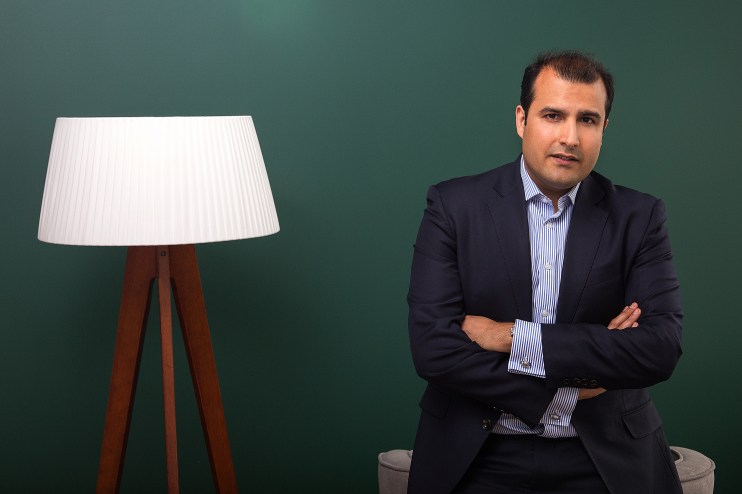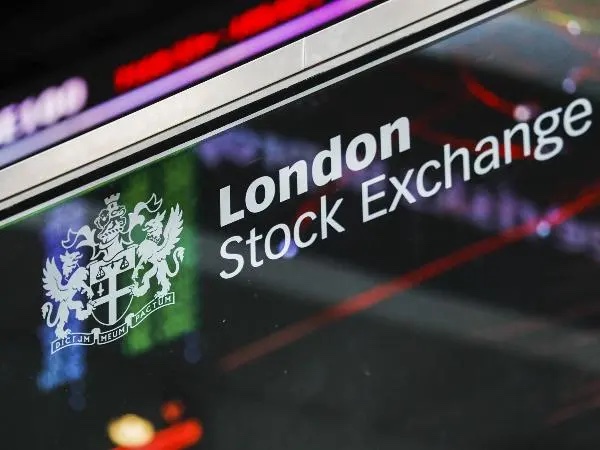Cash and carry to billion dollar boss: Quantexa chief Vishal Marria

From the age of six, Vishal Marria would hurry home from school in Clapham and get straight to work at his parents’ small shop in Brixton.
The elder Marrias had shifted their lives to South London from India in the 1960s and had set about building their own businesses immediately; starting off in deliveries, then off-licences and onto cash- and-carry stores. And for seven days a week, ‘Vish’ and his three siblings would muck in and help their parents make a success of them.
Now, looking back as founder and chief of billion-dollar data and AI firm Quantexa, he says those early days helped put business in his blood.
“Being in business has for me been a journey,” he tells City A.M. in an interview, “from a wee little nipper – six, seven years old – working in the cash and carry, to running a very large and growing technology business.”
Marria now sits at the helm of the UK’s only newly minted billion-dollar tech firm this year after raising $129m at a valuation of $1.8bn in April.
And while it might lack the flash of the AI names making headlines at Rishi Sunak’s Bletchley Park summit, Quantexa perhaps provides a more measured and less Terminator-tainted vision of where the technology could be heading.
Rare unicorn
Quantexa is fundamentally a business made to mitigate risk rather than embrace it. When laboriously stitching together separate data sets as a risk manager at EY, Marria saw a gap in the market for a tool that could automate whether to take on risky and potentially exposed clients.
He says it was enough of a glaring hole for him to “place a big brave hand on my heart” and make the leap.
“My hypothesis, back in 2015, was if I could turn the problem upside down, if I can stitch data at scale, and contextualise that data both internally and externally to the organisation, surely people will be more efficient and more effective in managing their risk?”
That hypothesis seems to have been fairly on the button. In its first iteration, Qauntexa rolled out a tool for financial institutions to automate risk but is now guzzling up a client base stretching across the public and private sector and allowing organisations to “automate decisions” and quickly suss out potential danger.
He now employs over 700 people worldwide, has over 10,000 users, and a presence in more than 20 cities in the world.
It’s a hard, challenging environment. Funding has been very, very selective
‘Challenging environment’
That Quantexa is the only new unicorn this year however is perhaps a marker of the quality of its pitch to investors and a sign of the torrid time facing start-ups.
Despite the Prime Minister’s attempts to dub the country “Unicorn Kingdom”, venture capital funding in the UK has fallen off a cliff and dragged down the valuations of the country’s most promising start-ups with it.
Just $15bn was raised in the first nine months of the year, less than the first quarter of 2022 alone, according to KPMG.
After touching record unicorn creation in 2022, Quantexa is the only firm to cross the threshold this year. The accolade comes with mixed emotions.
“Kudos to the business and what we’ve done and achieved in April. “But, [on] the flip side, it’s a shame that we haven’t seen others come through on that stage,” he says.
“It’s a hard, challenging environment. Funding has been very, very selective in where investors are putting their dollars their pounds, their euros.”

‘No US plans’
Quantexa’s bumper April fundraise has also likely done little to settle jitters over the flow of domestic capital into growth technology firms in the UK.
State-backed British Patient Capital is among its shareholders but the firm’s last two rounds have now been led by US-headquartered private equity outfit Warburg Pincus and the Singaporean sovereign wealth fund GIC, respectively.
Reform efforts are underway to try and free up pension money to flow into growth technology firms, but fears have taken hold that foreign investors have already swooped in and are whispering in the ears of the high growth firms, pulling them overseas.
Marria insists he’s made “no plans” to shift the firm Stateside but is far from ruling it out.
“Location strategy around headquarters, locations, our strategy around next steps of investments or funding or whatever it is, I always have to put Quantexa first,” he says.
Quantexa’s standout growth has already set it in the sights of the City’s top brass. Ministers and the London Stock Exchange staff have been on a charm offensive this year to try and woo any tech firm that might be on the cusp of a float.
When it marked its series E funding round, the London Stock Exchange rolled out the red carpet for Marria and co to close the market. The initiative has been conceived as something of a taster session for high growth start-ups to ring the proverbial bell ahead of a public market shift. Can he see himself returning for real in the future?
“We keep our options all open where we take Quantexa,” he insists.
“Raw ingredients”
For now, he says he’s just getting on with running a “very successful business.”
London will remain home as he pursues a grand expansion across East Asia and deeper into the US market, as well as ramping up a push into the healthcare sector.
The Capital still has all the right “raw ingredients” for firms like Quantexa to grow and thrive in the long term, he says.
“But,” he adds, “there’s plenty more to do.”